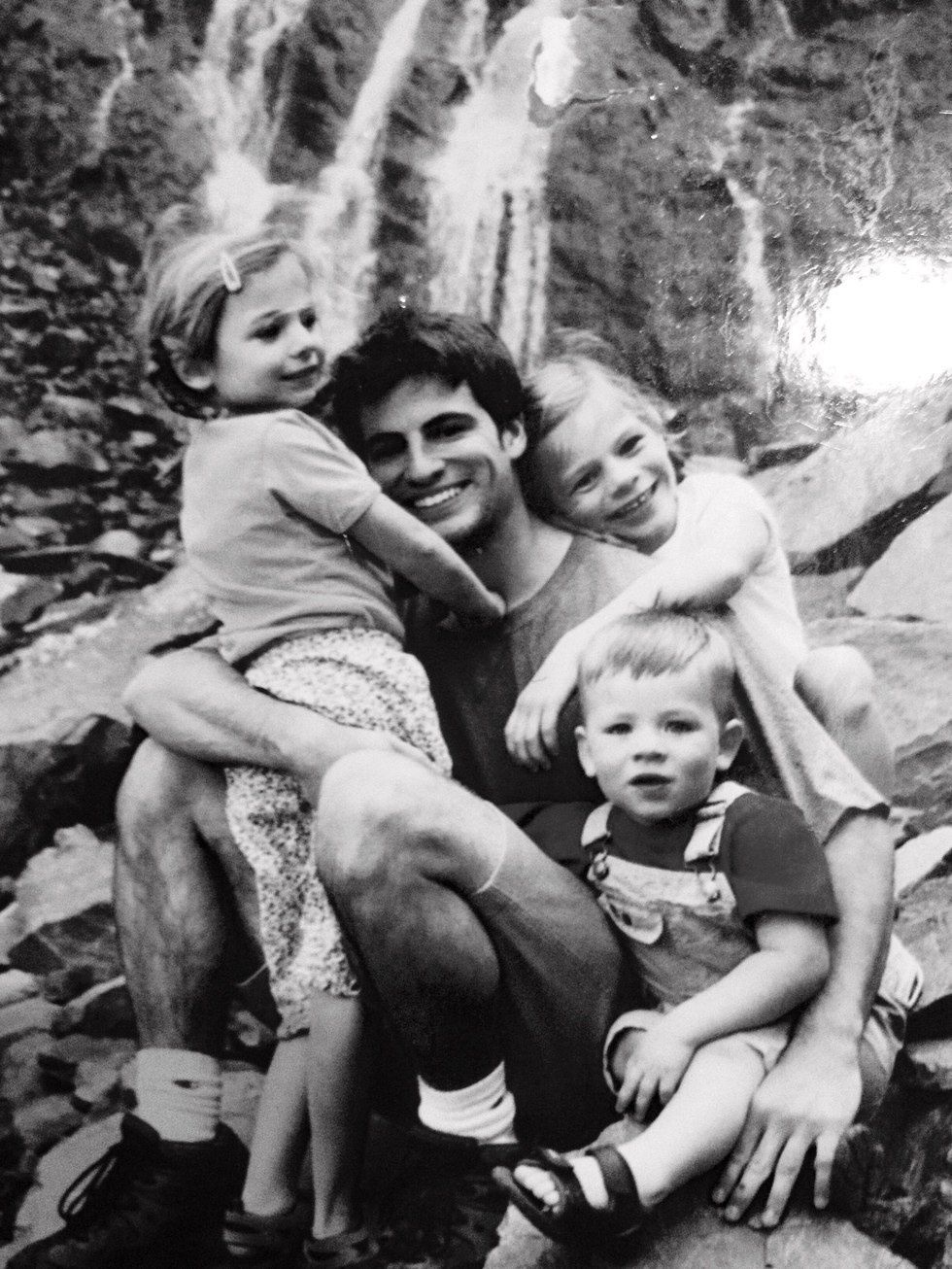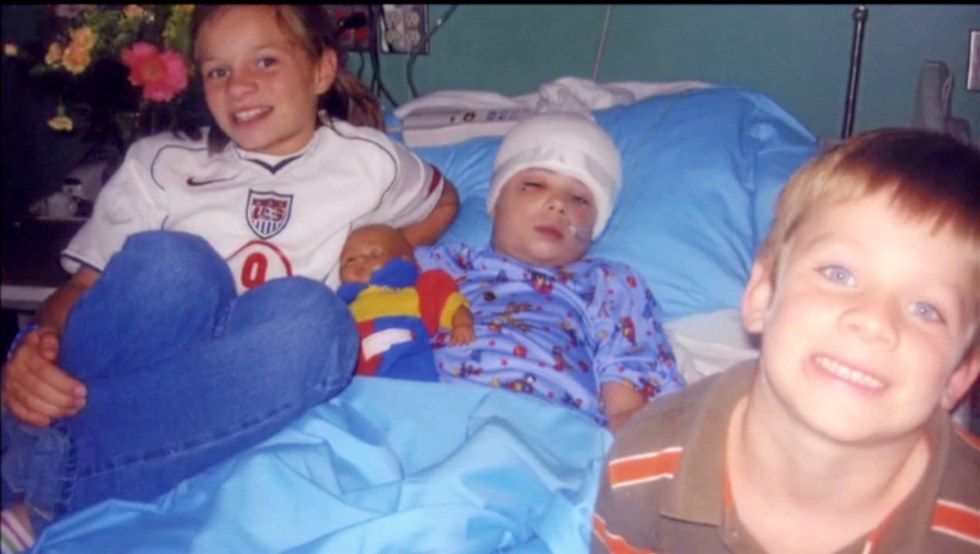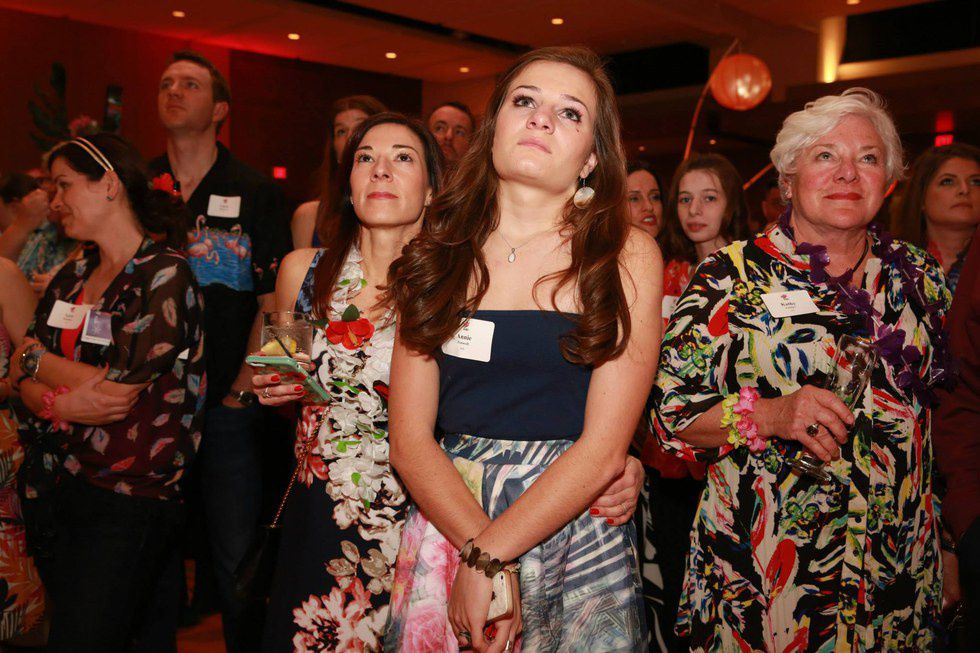The most important person in my life was brought to me when I was one and a half on May 21, 1998, in Madison, Wisconsin. My sister is the most influential person in my life. Grace is the sweetest and most caring person I know. She teaches everyone with whom she interacts to appreciate the simple things in life, to love unconditionally and to, in general, be happy. People used to think we were twins because my mom used to dress us in matching outfits (that is, if she even bothered dressing us that day, because Grace and I averaged about three costume changes per day). From our dress up and pretend princess lifestyle, to playing “Monster” with our parents, to avidly making the coolest fort out of an old refrigerator box, my early years were always spent with Grace and are some of my happiest memories.

Epilepsy has shaped me and my family’s lives since my now 17-year-old sister had her first seizure when she was nine months old. My mom said that she came home from the grocery store with Grace and I, and, as she was holding Grace and probably some shopping bags, she felt Grace shaking. Mom soon realized that the shaking was Grace’s first gran mal seizure. Mom called 911. I apparently got to watch "Sesame Street" while the paramedics explained what was happening to Grace.
Epilepsy is an uncomfortably common occurrence today. In their lifetime, one in 26 individuals will develop epilepsy, which affects more people than MS, Parkinson’s, and cerebral palsy combined. But epilepsy receives less than half of the research funding than any one of them.
Seizures are curious things. A seizure is basically when neurons over-fire stimuli. The seizures eventually leave something similar to scar tissue along the paths they travel, so the more seizures suffered by an epileptic, the deeper these pathways are blazed. The scientific explanation given to me by a brilliant neurologist, Dr. Avtar Roopra, is much more fascinatingly complex. I lack the sufficient brainpower to adequately re-explain the means by which seizures travel. The most well-known form of seizures are tonic-clonic seizures, or gran mal seizures. Limbs jerk uncontrollably, muscles stiffen and the individual looses consciousness.
Early on, Grace generally only had seizures when she got sick and her seizures were triggered by internal body heat spikes caused by fevers. But, as she grew older, doctors began to realize that she was not outgrowing these seizures like they initially predicted and hoped. I have always remembered her having seizures, but I became more conscience of the matter shortly after my brother, Murphy, was born when I was four and Grace moved into my bedroom to leave room to create a nursery for him. At that point in her life, Grace had her seizures while she slept and I woke up to most of her seizures.
At this point in her life, Grace currently has her seizures at night. Throughout her life, though, her seizures have been triggered by different stimuli, including different times of the day, exercise levels, physical health and other factors. There was a time when Grace could not play outside with my brother, my cousin, Lukie, and I because exercise overheated her body and she would have a seizure about five minutes into a game of tag or a jump session on our trampoline. At other times, mid-sentence, she would unpredictably have one. But other times, she used to get this look, time seemed to freeze as she stared off. You could just tell that she knew what was coming. It was quite eerie. Oddly enough, the most commonly associate trigger, strobe lights, do not affect Grace. Rather, my brother becomes highly agitated and I pass out. (Yep, I pass out. Yay complicated medical histories.)
Epilepsy obviously is very difficult to live with, but it takes a toll on the family and close friends that is rarely discussed. I sympathize with my parents’ emotional struggle, but I cannot empathize. As my younger brother has grown older, we have started to have more conversations about living with an epileptic sister with a high level of special needs. Murphy is fourteen and has a unique relationship with Grace. He had to go through an interesting phase where he overtook his older sister’s cognitive abilities when he was about four and she was about six. Compared to me at age fourteen, he has a much better grasp of how to handle his emotions regarding everything that surrounds Grace. He is fourteen-year-old boy, so he's a complete shithead about 85 percent of the time, but my not-so-baby brother grew up very quickly and is wise beyond his years. Epilepsy has taught him that he can be a big, tough 5'11", 175 pound football and basketball player but he can also be gentle, thoughtful, kind and loving. Once, in the course of a two day period, completely under his own physical strength, he carried both of his older sisters, one due to a seizure, the other due to a dislocated knee. Epilepsy has made him a "doer." Nothing fazes that kid anymore. I don't know if it's scary or admirable.
Murphy and I have seen some pretty messed up stuff in our lifetimes. Like the time we saw our sister about four days after she had a brain lobotomy. I was nine, Grace was eight and Murphy was five.
Even though that epilepsy has made my life different from most, I can’t deny that Epilepsy has taught me invaluable lessons. It has taught me patience. If you know any of the Penwell Gals, you’ll know that none of us are blessed with extraordinary patience, but epilepsy has taught us that patience is necessary. epilepsy has taught me how to love by appreciating the little things in life. It has also taught me some pretty cool things about the ever-fascinating human body. I have met some incredible people through epilepsy. My family has become heavily involved in the most wonderful non-profit, Lily’s Fund, with the goal of raising funds and awareness about epilepsy. Watching people come together at the annual fundraiser, Lily’s Luau, reduces me to tears. (Yes, that is a mixture of mascara, eyeliner, eyeshadow and tears coming down my face as we watch a video about Lily’s Fund.)
Help the one in 26. Help the sisters who stain their white, long sleeved, high school soccer uniform with Sharpie as they write “For the one in 26” on their wrists before each game. Help the brothers who can easily list off anti-epileptic medications. Visit http://lilysfund.org/ to learn about Lily’s Fund to help.
Help Gracie.
Help me.





















